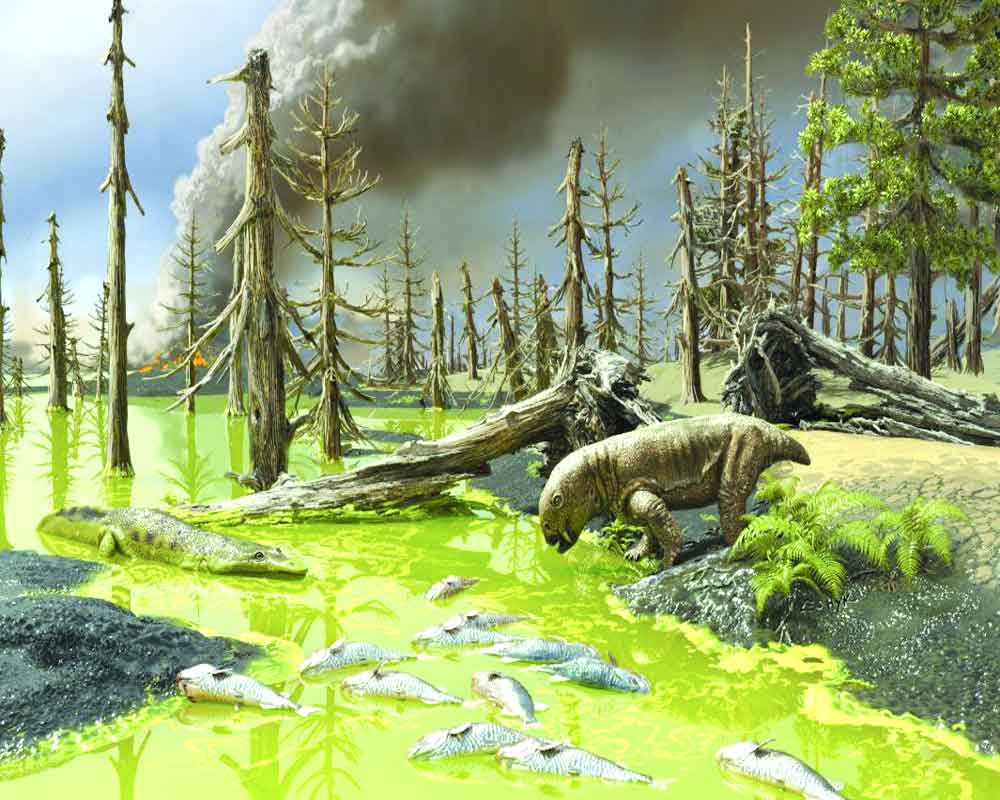With millions of animal and plant species under threat, the coming human extinction could well be caused by plundering the world and its environment
The current uproar over stray dogs attacking humans is a part of the human-animal conflict worldwide. This conflict, in turn, is part of growing human activity on earth which is hurting both human and non-human living beings and driving increasingly numerous categories of the latter to extinction. According to Professor Josef Settele (Germany) who co-chaired the Global Assessment Report on Biodiversity and Ecosystems Services at the seventh plenary session of the Intergovernmental Science-Policy Platform on Biodiversity and Ecosystem Services (Paris, April 29-May 4, 2019), along with Professors Sandra Diaz (Argentina) and Eduardo S Brondizio (Brazil and USA), “Ecosystems, species, wild populations, local varieties and breeds of domesticate plants and animals are shrinking, deteriorating or vanishing….This loss is a direct result of human activity and constitutes a direct threat to human well-being in all regions of the world.”
The report states, one “million animal and plant species are now threatened with extinction, many within decades, more than ever before in human history”. The World Wildlife Fund’s Living Planet Report 2022 reveals an average decline of 69 per cent in species populations since 1970. Not surprisingly, people are talking of the world being in the midst of the sixth great extinction till date. Elizabeth Kolbert wrote in The Sixth Extinction: An Unnatural History, “Very, very occasionally in the distant past, the planet has undergone change so wrenching that the diversity of life has plummeted. Five of these ancient events were catastrophic enough that they’re put in their own category: the so-called Big Five. In what seems like a fantastic coincidence….the history of these events is recovered just as people come to realise that they are causing another one.”
The losses referred to by Professor Settele is a result of humans treating the entire world and its environment as colonial rulers treated their colonies — exploiting and plundering these at will and treating native inhabitants as second-class citizens at best and sub-human beings at worst, in the same way white humans treated their coloured counterparts. In his landmark work, Animal Liberation: A News Ethics for Our Treatment of Animals, Peter Singer wrote, “This tyranny [of human over non-human animals] has caused and today is still causing an amount of pain and suffering that can only be compared with that which resulted from the centuries of tyranny by white humans over black humans. The struggle against this tyranny is a struggle as important as any of the moral and social issues that have been fought over in recent years.”
The tyranny Singer mentions is a result of speciesism, a term first used by Richard D. Ryder in a pamphlet titled Speciesism in 1970. The term connotes a mindset that membership of the category Homo Sapiens is the critical criterion and provides one the morality-based protection which is denied to all other species of living beings. Singer elaborates that the term stands for an “attitude of bias towards interests of one’s owns species and against those of members of other species”. Singer says, “The speciesist allows the interests of his own species to over-ride the greater interests of members of other species,” and adds, “Most human beings are speciesists” and that the “overwhelming majority of humans” takes “an active part in, acquiesce in, allow their taxes to pay for practices that require the sacrifice of the most important interests of other species in order to promote the most trivial interests of their own species”.
Singer explores deeply the terrible exploitation of animals — inflicting intense pain and suffering on them — by humans in areas like breeding them in factory farms for slaughter (keeping them under the most horrible conditions while they are alive) and subjecting them repeatedly, for prolonged periods, to experiments and testing of products on them. In the case of the latter, he says, citing numerous experiments, “The conclusions of the experiments cited show clearly enough that experimental psychologists have put a lot of effort in telling us in scientific jargon what we knew all along, and what we could have confirmed in more harmless ways with a little thought.” He further asks, “Should hundreds of animals suffer so that a new kind of lipstick or mouthwash can be put on the market?”
The speciesist attitude towards non-human living beings conduces to their extinction through the destruction of their habitats through the construction of roads, railway lines, human settlements and industrial establishments. Encroachments into their habitat also bring humans into closer contact with them, causing growing human-animal conflicts. The result is the extinction of animals we have been talking about.
Animals being a vital part of the ecological support system that sustains human existence, their extinction will also pave the way to human extinction. Those inclined to smirk at this thought, should remember what Desmond Morris wrote in The Naked Ape: A Zoologist’s Study of the Human Animal, “We tend to suffer from a strange complacence that this can never happen, that there is something special about us, that we are somehow above biological control. But we are not. Many exciting species have become extinct in the past and we are no exception.”
(The author is Consulting Editor, The Pioneer. The views expressed are personal.)


























